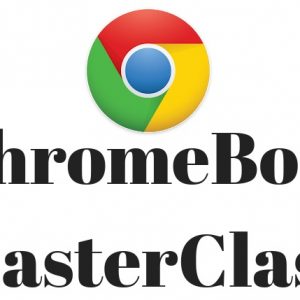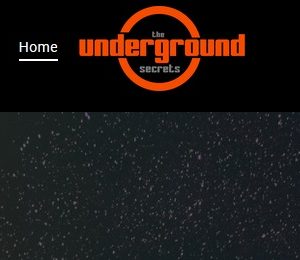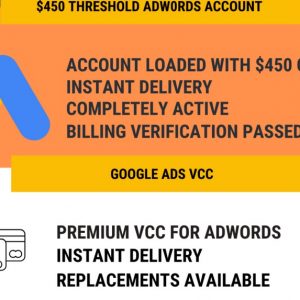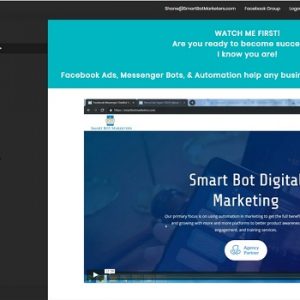[GroupBuy] The Collective – Greg Hickman AltAgency
$500.00 Original price was: $500.00.$79.00Current price is: $79.00.
The Collective represents a transformative community and methodology designed for agency owners seeking to escape the relentless cycle of custom work and burnout. By focusing on structured systems and leveraged offers, The Collective provides the tools and support needed to scale businesses efficiently, turning expertise into profitable, automated streams while emphasizing work-life balance.
Table of Contents
The Collective
The Collective stands as a beacon for agency owners trapped in the fulfillment quagmire, offering a structured pathway to reclaim time, boost profitability, and foster sustainable growth. This initiative, drawn from the AltAgency™ Method, emphasizes the power of community-backed implementation to turn vague aspirations into tangible results. Through its comprehensive curriculum and personalized support, it addresses the core frustrations of scaling a service-based business, such as overwhelming client demands and chaotic operations, by promoting a shift towards productized expertise and automated systems. In essence, The Collective isn’t just a program; it’s a strategic ecosystem that empowers owners to build businesses that thrive on their own, allowing for a more balanced lifestyle.
Understanding the Fulfillment Trap
The traditional agency model often lures owners into what can only be described as a fulfillment trap, where every new client brings more custom work, more hours, and more stress, ultimately eroding the promised freedom of entrepreneurship. This trap manifests through symptoms like constant firefighting, scope creep, and the illusion that growth equates to more hands-on involvement, as highlighted in the briefing document. Personally, I see this as a vicious cycle fueled by the initial excitement of landing deals, only to realize that each project demands unique tweaks, draining resources and creativity.
To break free, agency owners must first acknowledge that this model isn’t scalable; it’s a hamster wheel disguised as progress. Drawing from the document’s insights, the key is to reframe expertise not as bespoke services but as valuable intellectual property that can be standardized. For instance, imagine transforming a custom marketing strategy into a repeatable framework—suddenly, what was once a time-intensive process becomes a product that sells itself. This shift not only reduces reliance on the owner but also opens doors to predictable income. In my analysis, the real creative insight here is the psychological barrier: owners must overcome the fear of commoditizing their skills, recognizing that standardization doesn’t dilute value; it amplifies it by reaching more clients efficiently.
Moreover, the document quantifies this transformation by aiming for a 3 or 4 day work week, a goal that seems revolutionary in an industry known for its grind. By systemizing operations, agencies can automate client onboarding and delivery, freeing up mental space for innovation rather than execution. This approach isn’t just about working less; it’s about working smarter, ensuring that energy is directed towards high-impact activities. Through The Collective, participants gain access to tools like the Core Offer Designer™, which helps distill expertise into signature offers, making the transition feel less daunting and more achievable.
Implementing the AltAgency™ Method
Diving deeper into the AltAgency™ Method, The Collective facilitates the productization of expertise by guiding owners through frameworks that turn abstract knowledge into marketable assets. This process begins with identifying and refining unique intellectual property, such as proprietary strategies, into defined offers that attract clients without the need for endless sales pitches. From a personal perspective, this is where the magic happens—creatively repurposing years of hands-on experience into something scalable feels like evolving from a artisan to an architect, building systems that outlast individual efforts.
The method’s emphasis on systemization extends to client acquisition and delivery, using tools like the Content Engine™ to automate lead generation and the Consultation Engine™ for seamless conversions. In analyzing this, I find that the true innovation lies in the integration of technology and human insight; for example, automating follow-ups doesn’t replace personal touch but enhances it, allowing owners to focus on relationship-building rather than administrative drudgery. This leads to a business that operates independently, a concept that’s particularly liberating for those who’ve experienced burnout from micromanaging every detail.
Furthermore, monetizing through leveraged offers creates an ecosystem of revenue streams, from high-ticket programs to digital products, all stemming from the core IP. The Collective supports this with weekly sessions and community feedback, ensuring that implementation is practical and tailored. My take is that this holistic approach addresses not just the business side but the emotional toll, fostering a sense of community that combats isolation. Ultimately, achieving that 3 or 4 day work week becomes a realistic milestone, as owners learn to leverage their team’s capabilities and automated playbooks for sustained growth.
Measuring Success and Scalability
As agencies implement The Collective‘s strategies, success is measured not just in revenue but in the restoration of work-life balance and reduced dependency on the owner. The briefing document outlines outcomes like predictable income and time freedom, which can be tracked through metrics such as client retention rates and hours worked per week. Creatively, I view this as a paradigm shift from reactive to proactive management, where owners predict challenges before they arise, using data-driven insights to refine operations.
One effective way to present this data is through a simple bulleted list of key outcomes, highlighting the transformative potential:
- Time Freedom: Transition from 60-hour weeks to 25-35 hours, enabling a 3 or 4 day work week focused on strategic growth.
- Predictable Income: Shift from volatile sales cycles to steady streams via productized offers, reducing financial stress.
- Scalability: Build a business that scales profits without expanding the team, emphasizing efficiency over expansion.
- Owner Independence: Move from client dependency to system-driven results, allowing for personal pursuits outside work.
In my analysis, the beauty of these metrics lies in their interconnectedness; for instance, productizing expertise directly feeds into monetization, creating a feedback loop that compounds benefits. Owners often underestimate the long-term impact of this, but through The Collective, the community aspect ensures accountability, turning isolated efforts into collective triumphs. This not only accelerates progress but also infuses the process with inspiration, as peers share successes and solutions.
Finally, scalability in The Collective means evolving beyond the initial setup, continuously optimizing offers and systems for maximum efficiency. Personally, I believe this ongoing refinement is where true mastery emerges, as owners iterate based on real-world feedback, turning good ideas into exceptional ones. By prioritizing these elements, agencies can achieve not just survival but genuine thriving in a competitive landscape.
Greg Hickman AltAgency
Greg Hickman, the architect behind the AltAgency™ Method, has crafted a revolutionary blueprint through Greg Hickman AltAgency that redefines how service providers operate, emphasizing leverage and autonomy over traditional hustle. This approach, as detailed in the briefing document, stems from Hickman’s own experiences with business pitfalls, transforming them into a structured system that promises not just growth but personal liberation. Through The Collective, Hickman’s vision comes to life, offering agency owners a way to escape the time-for-money trap and build enterprises that generate wealth without proportional effort. This section explores how his methodology integrates productization, systemization, and monetization to deliver on the promise of a 3 or 4 day work week.
The Origins and Philosophy of AltAgency™
At the heart of Greg Hickman AltAgency is a philosophy born from real-world struggles, where Hickman recounts his own journey from drowning in client demands to creating a scalable model. This narrative isn’t just motivational; it’s a foundational insight that underscores the need for a shift from custom, labor-intensive services to standardized, value-driven offers. In my personal analysis, this philosophy represents a creative rebellion against the status quo, challenging owners to view their expertise as a commodity that can be packaged and sold repeatedly, rather than a finite resource traded for hours.
Delving deeper, Hickman’s method critiques the fulfillment trap by highlighting how traditional agencies scale chaotically, leading to burnout and inefficiency. For example, the constant need to personalize services erodes profitability, as owners find themselves in endless cycles of revisions and client hand-holding. Creatively, I see this as an opportunity for reinvention: by distilling expertise into frameworks like the Magnetic Message Framework™, agencies can create offers that resonate broadly, attracting clients who value results over customization. This not only streamlines operations but also positions owners as thought leaders, getting paid for their thinking rather than mere execution.
Moreover, the inclusion of quantifiable goals, such as achieving a 3 or 4 day work week, adds a layer of practicality to Hickman’s philosophy. It’s not about working less for less output; it’s about optimizing processes so that high-value activities drive growth. In evaluating this, I find that Hickman’s emphasis on personal freedom injects a human element into business strategy, reminding owners that success should enhance life, not consume it. Through The Collective, this philosophy is democratized, providing accessible tools for implementation.
Core Components and Tools for Transformation
Greg Hickman AltAgency breaks down the transformation process into core components, starting with productizing expertise to create scalable offers that form the backbone of a leveraged business. Tools like the Core Offer Blueprint™ guide owners in defining their signature services, turning vague ideas into concrete products that sell with minimal intervention. From a creative standpoint, this component is akin to sculpting: owners chisel away the unnecessary custom elements to reveal a streamlined offer that retains its essence while becoming infinitely replicable.
Systemization follows as a critical pillar, encompassing acquisition, conversion, and delivery through automated systems such as the YouTube Client Machine™ and Client OnRamp™. In my analysis, this is where Hickman’s method shines brightest, as it addresses the operational chaos that plagues many agencies. By automating these functions, owners can reduce their daily involvement, allowing the business to run on autopilot. For instance, imagine a content engine that generates leads consistently, freeing up time for strategic planning rather than content creation. This level of efficiency directly supports the goal of a 3 or 4 day work week, as routine tasks no longer dictate the schedule.
Monetization rounds out the components, with Hickman advocating for diversified revenue streams built around productized IP. This could include hybrid offers or low-ticket digital products, ensuring multiple entry points for clients without overwhelming the business. Personally, I view this as a strategic masterpiece, as it creates resilience against market fluctuations. Through Greg Hickman AltAgency, participants receive support via weekly consulting sessions, which provide real-time feedback to refine these elements, turning theoretical concepts into actionable strategies.
Long-Term Impact and Community Integration
The long-term impact of Greg Hickman AltAgency lies in its ability to foster a business that operates independently, reducing reliance on the owner and promoting scalability without exponential growth in hours or team size. As outlined in the document, this results in predictable income and enhanced profitability, with systems ensuring that results are consistent regardless of personal involvement. Creatively, I interpret this as building a legacy: owners aren’t just running a business; they’re creating an entity that can evolve and sustain itself, much like a well-oiled machine.
Integration with The Collective amplifies this impact through community support, including quarterly mastermind retreats and personalized planning sessions. These elements provide a network for peer learning and accountability, which is often missing in solitary agency endeavors. In analyzing this, I see the genius in Hickman’s approach: by combining individual tools with collective wisdom, he ensures that transformation is sustainable. For example, owners can share how they’ve adapted the Perfect Week System™ to achieve their 3 or 4 day work week, inspiring others to do the same.
Ultimately, the enduring value of Greg Hickman AltAgency is in its holistic view of success, encompassing financial gains and personal well-being. My insight is that this method doesn’t just scale businesses; it scales lives, encouraging owners to prioritize fulfillment over frenzy. As participants optimize their operations, they find themselves not only enjoying increased profitability but also reclaiming time for what truly matters outside of work. This transformative journey is crucial in a world where burnout and overwork are rampant, and it fosters a culture of balance that resonates deeply with agency owners seeking more than just financial success.
Building a Resilient Business Model
One of the most compelling aspects of Greg Hickman AltAgency is its focus on building resilience into business models. In today’s unpredictable economy, relying solely on traditional client relationships can leave agencies vulnerable to fluctuations in demand. By embracing productization and systemization, agencies can develop models that sustain them through cycles of economic uncertainty.
The resilience comes from creating standardized offerings that can be marketed and sold without constant customization. For instance, a digital marketing agency might offer tiered service packages based on predefined outcomes rather than bespoke campaigns. This not only makes pricing more transparent for clients but also reduces the decision fatigue often experienced by agency owners. In my analysis, this model empowers agencies to pivot quickly when market conditions change, allowing them to seize new opportunities or mitigate risks without sacrificing their core services.
Moreover, integrating community feedback and collaboration within The Collective enhances this resilience further. Owners can tap into collective insights about emerging trends, client demands, and effective strategies that others have successfully implemented. This shared knowledge acts as a buffer against isolation, enabling individuals to feel supported while navigating challenges. I see the synergy fostered within The Collective as an essential element for long-term sustainability; it helps agency owners remain agile and adaptive, ensuring they not only survive but thrive.
Elevating the Role of Agency Owners
Another profound impact of the Greg Hickman AltAgency approach is the elevation of the agency owner’s role from a service provider to a thought leader. When owners adopt a productized approach, they begin to position themselves as experts in their field. This transition is not merely about changing perceptions; it’s about fundamentally transforming how agency owners relate to their work.
By focusing on high-value activities and automating lower-value tasks, agency owners can dedicate significant time to strategic thinking, innovation, and relationship building. They can engage in industry discussions, create valuable content, and develop frameworks that establish them as authorities. This repositioning can lead to speaking engagements, partnerships, and increased visibility—all of which contribute to an enhanced reputation and further business growth.
In my perspective, this evolution is akin to a renaissance in the service sector, where agency owners are encouraged to share their knowledge and experience with the world. The emphasis on becoming a thought leader through platforms like The Collective offers agency owners not just tools but also the mindset required to shift from mere executors of tasks to influential figures shaping industry standards and practices. As they embrace this role, agency owners experience greater fulfillment and a sense of purpose, knowing that their work transcends transactional engagements.
Conclusion
In summary, Greg Hickman AltAgency provides a robust framework for agency owners looking to escape the limitations of the traditional service-based model. By emphasizing productization, systemization, and monetization, Hickman empowers owners to cultivate scalable businesses that allow for reduced hours while maximizing profits. This methodology challenges the conventional time-for-money paradigm, offering a pathway to sustainable freedom.
The integration with The Collective amplifies this transformation, providing a supportive community where agency owners can share experiences, learn from peers, and refine their strategies. Ultimately, this holistic approach not only reshapes businesses but also enriches lives, promoting a healthier work-life balance and elevating the role of agency owners within their industries. Through these principles, participants are equipped to build resilient enterprises that generate wealth and fulfillment without being shackled to the grind of everyday labor.
Sales Page:_https://altagency.com/collective/
Delivery time: 12 -24hrs after paid
Be the first to review “[GroupBuy] The Collective – Greg Hickman AltAgency” Cancel reply
Related products
Marketing












Reviews
There are no reviews yet.